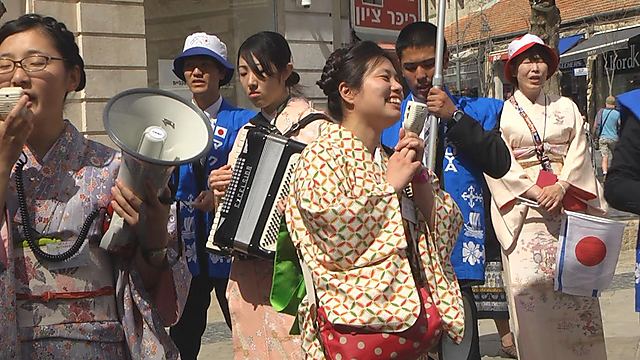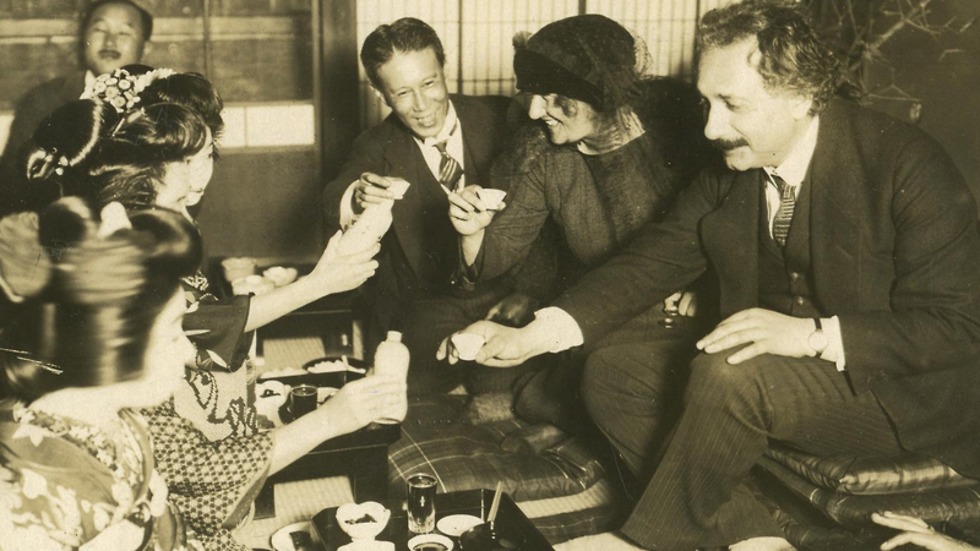

In Japan, 'Jewish domination' is a good thing, says prof.
Japanese history expert says while Germans believed the solution to the anti-Semitic cannard that 'Jews rule the world' was expulsion and annihilation, in Japan, people concluded that they must learn from the Jewish community, turning anti-Semitism into philo-Semitism.
Traits ascribed to Jews that are seen as negative in the West, such as a disproportionate control over world events and finances, are welcomed and valued in Japan, claims a Japanese history professor from Jerusalem.
Follow Ynetnews on Facebook and Twitter
Professor Ben Ami Shiloni, professor emeritus of Japanese history at the Hebrew University of Jerusalem, has published a book about Jewish-Japanese ties and believes that the two peoples have developed a consciousness and feel uniqueness compared to other nations.
For centuries Japan was closed to the outside world and only in the 19th century did the country open up to commerce with the West. Accordingly, Japan had no Jewish community, or anti-Semitism, but with the opening of the country to outsiders, European Jewish businessmen formed ties with the country.
According to Shiloni, it was — ironically — only after Jewish investment helped Japan beat Russia in their 1904-5 war that European anti-Semitic literature began to enter the country.
“The interesting thing is that the Japanese reached entirely different conclusions from European anti-Semitic theories. While the Germans believed that the solution to the anti-Semitic claim that "the Jews rule the world" is expulsion and annihilation, the Japanese concluded that they must learn from the Jews, connect with them and implement the good things they do. In other words, their anti-Semitism became philo-Semitism — affection and respect.
Shiloni points to the 1923 visit by Albert Einstein in to Japan. The scientist was welcomed with great fanfare and given a lot of respect. He met with many senior figures and delivered a series of highly publicized lectures.
“In order to understand the Japanese approach to the Jews, a few years ago we were visited by a senior Japanese delegation,” Shiloni says. “After the meal, the leader of the group stood up, thanked the hosts and said that he and the other members of the delegation knew very little ablaut Jews and Israel before the trip. In preparation, they searched for a book on the subject and after reading it they felt that they now understand Israel’s success and the special position Jews hold.
“He then drew the book from his pocket and gave it to us a s a gift — it was The Protocols of the Elders of Zion. This shows that classic anti-Semitic literature is seen by the Japanese as a model for success and imitation. In essence, they draw counterintuitive conclusions regarding the Jews and how to relate to them,” he said.
Rescuing Jews during WWII
An interesting chapter in Jewish-Japanese relations is the safe haven afforded by the Nazi allied Japanese government to Jewish refugees fleeing Europe. Many Jews settled in Shanghai (then under Japanese control) and survived the war.
Chiune Sugihara, the Japanese vice Consul in Kaunas Lithuania risked his life and career to issue thousands of visas to desperate Jews, allowing them to flee the Nazis. Sugihara was later awarded the Righteous Among the Nations Award by Yad Vashem.
Following World War Two, many Japanese were ashamed of their country’s pact with Hitler, according to Shiloni. Many saw the new State of Israel as a gateway for them to the Western-American influenced world.
Currently there is a small Jewish community in Tokyo and two Chabad houses. Most of the Jews there are on business, along with a number of Israeli travelers and Jews married to a Japanese spouse.
There are also groups of Japanese that express a special interest in Israel and the Jewish people from an intellectual perspective and they often visit Israel. In the 1950s, Kibbutzim attracted Japanese volunteers, although that trend has waned in recent years says Shiloni.

















